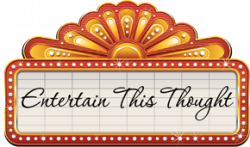The Perils of Ponzi Pigeons
A tale of deceit, cheating and greed. This fascinating plot is almost too good to be true. And yet it is: in fact, the story of The Pigeon King is all true. This is the second time around for Blyth’s The Pigeon King. The play was created over a year ago as a group effort by the cast that appeared in it last summer. This year they refined it and are all back to present it again. And next year, the play and the cast will be part of the line up at the National Arts Centre in Ottawa. Their efforts have paid off – the show is better than ever.
The Pigeon King is the true story of Arlan Galbraith, a smooth-talking, friendly-faced salesman who convinced hundreds of farmers in Ontario, Pennsylvania and Western Canada to buy his breeder pigeons. They signed a 10-year contract, where he would buy back the young pigeons their breeders produced. At first, Galbraith, AKA The Pigeon King, told the farmers he had markets for racing pigeons, then later he said he was selling them as squab, edible pigeons considered a delicacy.
In fact, no market existed. Galbraith was selling the offspring as breeders to other farmers. It was a pyramid scheme, destined to fail. There weren’t enough farmers in the world to buy all the pigeons being produced.
In The Pigeon King we meet the farmers Galbraith draws into his scheme. They are filled with hope that this new deal is going to save their economically-strapped family farms. But the farmers and employees can’t get answers from Galbraith about his markets. By the end of Act I, the Ponzi scheme collapses under its own weight.
In Act II, we see Galbraith’s trial. He is determined to act as his own lawyer, and poses the most ridiculous questions, which are actually taken directly from court records. We watch as his defence unravels and he is eventually found guilty. The farmers are left to destroy the useless pigeons, and try to repay the debt they took on getting into the scheme. It’s a fascinating tale, close to home, and told in an interesting fashion, with action and song. The six member cast collaborated on the writing of the story, with Artistic Director Gil Garratt taking the lead role, and Severn Thompson (she and her family have a long history with the Blyth Festival) as Director.
Garratt is at his best, tackling the role of Arlan Galbraith. In fact, Garratt is unrecognizable. His usually longer tousled hair is all cut off, even shaved to give him a receding hairline. His posture and walk replicate Galbraith’s. Even his voice sounds nothing like himself – he has adopted the shyster’s speaking style and speech patterns.
Galbraith is a fascinating character. From Garratt’s portrayal, we see a compulsive liar who believes that once he says it, it must be so. He is also a narcissist who wants to be admired and respected. In fact, there are many Trump-like characteristics in Garratt’s interesting portrayal of Galbraith.
Rebecca Auerbach shines as a frustrated farm wife and the crown attorney who can’t believe Galbraith’s performance in court. Birgitte Solem is excellent as Mary Baxter, the magazine reporter who starts asking questions. Jason Chesworth is good as the employee who finally realizes the scam is illegal. J. D. Nicholsen holds our attention as the injured farmer and the angry protester. George Meanwell is excellent as both the supportive father and the representative from the Mennonite community.
With Garratt accurately capturing Galbraith’s strange habits and weird pronouncements, he seems like a comedic caricature, evoking laughter. But sometimes the laughter seems inappropriate when the harm Galbraith caused is considered.
The scene where farmers have to come up with a way to destroy the useless pigeons is especially poignant. Freeing the birds doesn’t work as they just come back, expecting to be fed. Besides, introducing thousands of pigeons into the wild could be very harmful to the eco system. Drowning or gassing them is the solution, which is so difficult for those forced to do it.
As well as writing the script, the company also wrote music and lyrics to enhance the story. The songs set the tone for what the characters are thinking. This year’s updates include fewer characters, making the show easier to follow. One regular theatre goer remarked that he enjoyed it more this year, as the plot unfolded.
This show makes us wonder why on earth Galbraith did all this. Unlike other fraudsters who have spun Ponzi schemes, such as Bernie Madoff, Galbraith didn’t live the high life with mansions and fancy cars. So why did he do it, if it wasn’t a get-rich-quick scheme? The picture we see in this captivating production is a pathetic man who just wanted to be a big shot and believed he was entitled to have control and superiority over others.
Credit goes to Blyth Festival for the creation and production of this fascinating study of the failings of one man’s personality, which in turn caused horrific hardship for so many others. It gives an audience much to think about.
The Pigeon King continues at the Blyth Festival in repertoire until June 15. Call 519-523-9300 / 1-877-862-5984 or go to www.blythfestival.com for tickets.
Photo: Gil Garratt as Arlan Galbraith, with the rest of the cast, in The Pigeon King. Photo by Terry Manzo.
The Pigeon King
By The Company
Music and lyrics by The Company
Directed by Severn Thompson
Performed by Rebecca Auerbach, Jason Chesworth, Gil Garratt, George Meanwell, J.D. Nicholsen, Birgitte Solem.
The Blyth Festival, Blyth
May 30 to June 15, 2018
Reviewed by Mary Alderson
